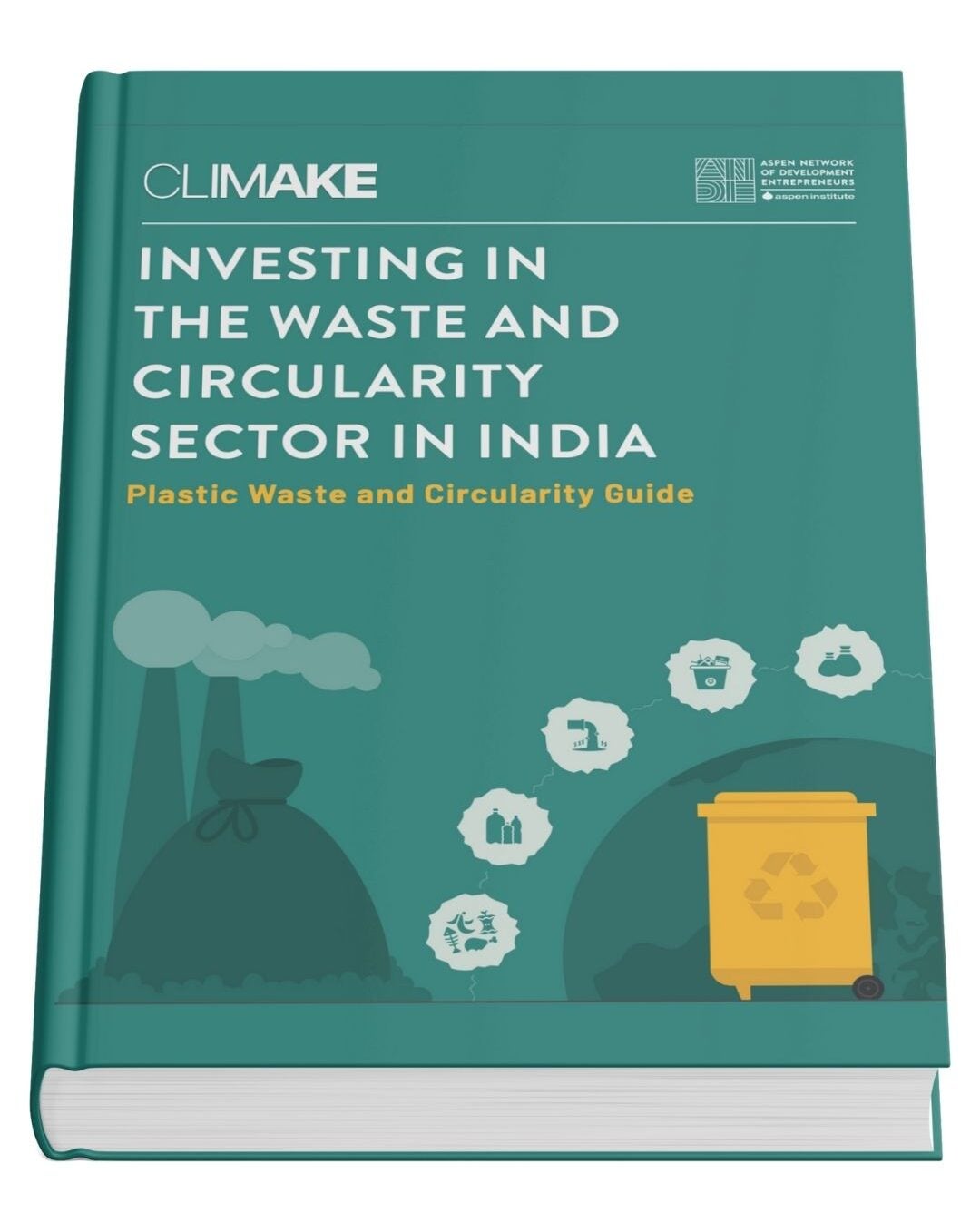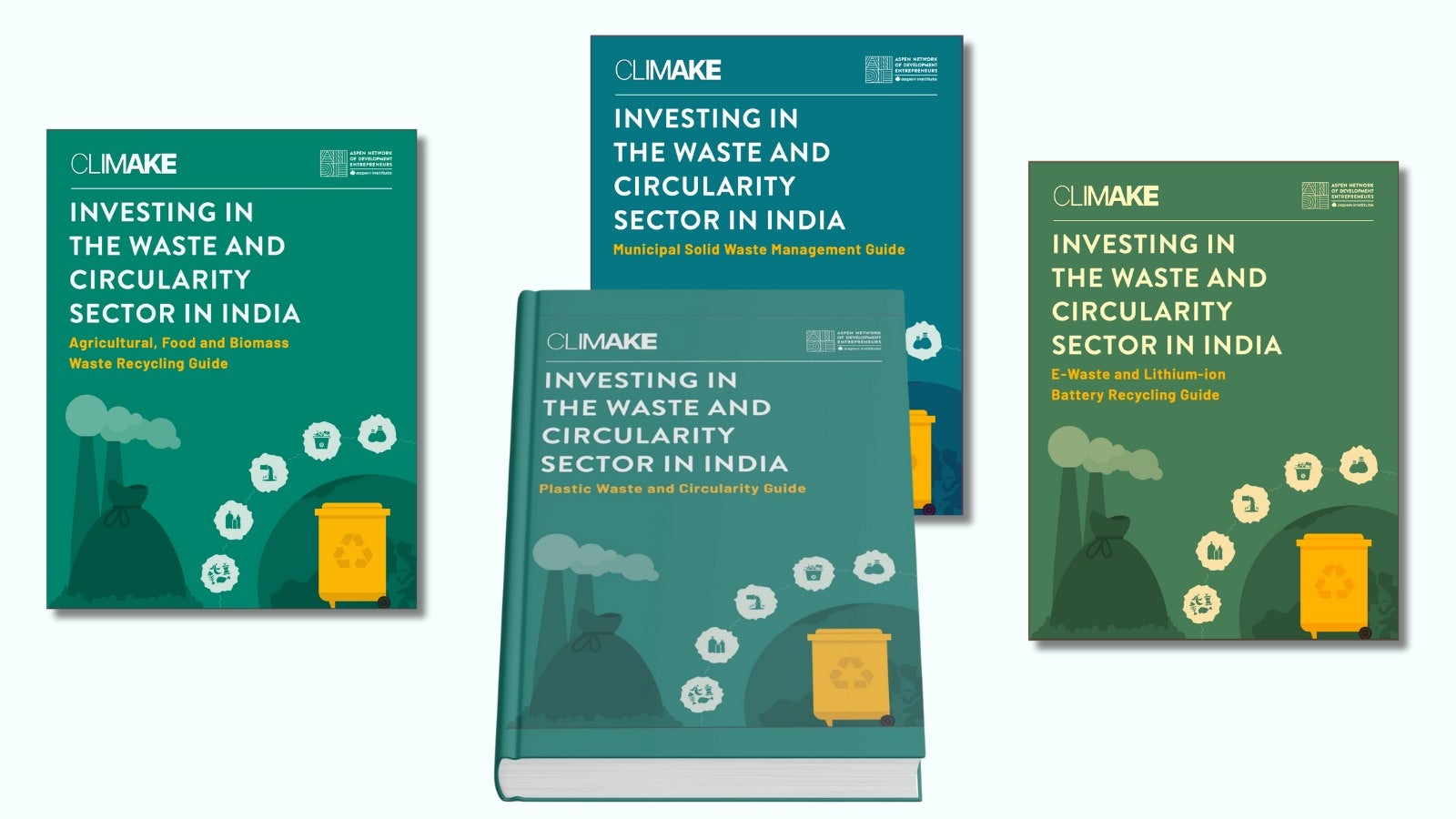
Explore India’s waste revolution with deep-dive reports on plastic, e-waste, biomass, and municipal solid waste. From advanced recycling technologies to renewable energy solutions, discover investment-ready opportunities driving sustainability and circularity.
 India’s journey toward a sustainable future takes a significant step forward with the release of four detailed investment guides on key waste and circularity sub-sectors. These reports were developed as part of ANDE’s project, Access to Green Finance, with grant support by the Ikea Foundation. The guides—produced in collaboration with Climake—focus on the plastic waste, e-waste and lithium-ion battery recycling, agricultural biomass waste, and municipal solid waste management (MSWM) sectors, each demonstrating transformative opportunities for innovation, investment, and impact.
India’s journey toward a sustainable future takes a significant step forward with the release of four detailed investment guides on key waste and circularity sub-sectors. These reports were developed as part of ANDE’s project, Access to Green Finance, with grant support by the Ikea Foundation. The guides—produced in collaboration with Climake—focus on the plastic waste, e-waste and lithium-ion battery recycling, agricultural biomass waste, and municipal solid waste management (MSWM) sectors, each demonstrating transformative opportunities for innovation, investment, and impact.
Insights from the Reports
Plastic Waste Management
India produces over 4 million tonnes of plastic waste annually, with recycling rates far below potential. The plastic circularity report highlights advancements in mechanical and chemical recycling technologies and the growing demand for high-quality recycled plastic. Extended Producer Responsibility (EPR) mandates are creating a regulatory push for businesses to adopt circularity practices, incentivizing investments in innovative recycling and sustainable alternatives.
E-Waste and Lithium-Ion Battery Recycling
India’s e-waste is set to double to 9 million tonnes by 2030, accompanied by rapid growth in lithium-ion battery waste driven by consumer electronics and electric vehicles. With a forecasted market value of $11 billion by 2030, this sector presents a high-growth investment landscape. Key opportunities lie in advanced hydrometallurgical recycling technologies and strategies to formalize informal e-waste systems.
Agricultural Biomass Waste
Generating 350 million tonnes of waste annually, the agricultural sector in India is poised for transformation. Reports detail scalable solutions such as biogas and bio-CNG production, biochar technology, and biofuel manufacturing. With policies encouraging the adoption of renewable energy, this sector offers untapped potential for low-cost energy solutions and circular biomass utilization.
Municipal Solid Waste Management (MSWM)
India’s urban centers generate 60 million tonnes of waste annually, with projections to reach 165 million tonnes by 2031. Reports emphasize the importance of biomining legacy landfills, digitized collection systems, and material recovery facilities to address the growing challenges. Opportunities for investment include high-value output technologies and scalable MSWM solutions.
Driving Innovation and Investment
Each report underscores the vast potential for aligning environmental impact with financial returns. From innovative recycling technologies to renewable energy solutions, these sub-sectors are ripe for investments that can address both local and global sustainability challenges. The reports also spotlight successful case studies, such as ReCircle’s integration of informal waste workers into formalized systems and Green Worms’ decentralized waste management in underserved regions.
A Call to Action
With the demand for circular solutions growing, these reports provide actionable insights for stakeholders—investors, entrepreneurs, policymakers, and corporates—aiming to contribute to India’s waste and circularity transformation. The path forward is clear: innovation, collaboration, and strategic investments can drive the change needed for a sustainable future.

Explore the investment guide and the four sub-sector deep dive reports for more details. Let’s work together to create solutions that matter.
